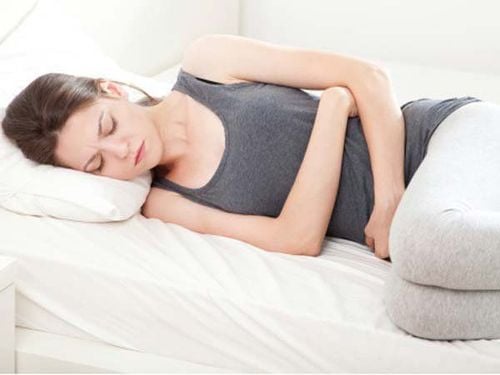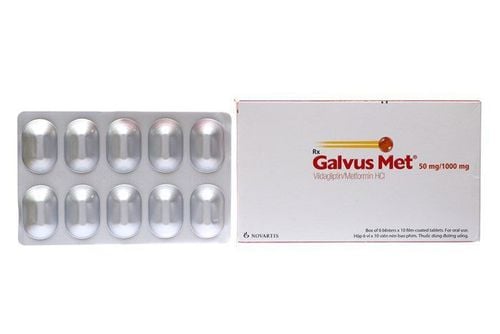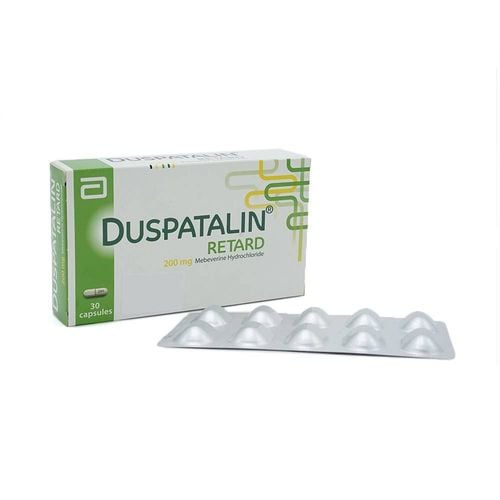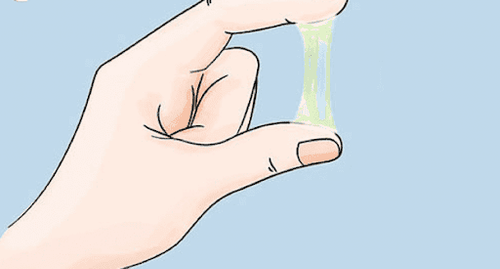This article is consulted by Master of Medicine, Doctor Mai Viễn Phương - Department of Outpatient & Internal Medicine - Vinmec Central Park International General Hospital.
One of the reasons you might experience constipation is due to hormonal changes. You might find yourself constipated before some periods but not others. Read on to find out why you might get constipated before your period, ways to relieve the discomfort, and when to see a doctor.
1. What Causes Constipation?
The main job of the large intestine is to absorb water from leftover food as it passes through your digestive system. It then creates stool (waste). The muscles of the colon eventually push the waste out through the rectum for elimination. If stool stays too long in the colon, it can become hard and difficult to pass.
For more information on the causes and signs of constipation, as well as the basic medical aspects of constipation, please refer to the article below.
SEE MORE: Understanding Constipation
There are several reasons why you might get constipated, and one of them is due to your hormone fluctuations. You may notice you experienced constipation before some periods but not in others. Regardless, you might encounter this issue and other digestive problems before or after your menstrual period.
2. Why does Constipation occur before Your Period?
Your menstrual cycle is the result of a constant regulation of estrogen and progesterone levels in your body.
These hormones not only affect you when you ovulate but can also affect your bowel habits.
Some experts suggest that an increase in progesterone can lead to constipation. This often happens when you ovulate or a few days after. Other experts suggest that higher estrogen levels can lead to constipation.
For example, researchers in 2013 studied the effects of estrogen and progesterone on female and male mice to determine if these hormones cause constipation.
At the end of the study, the researchers did not observe any effect of progesterone on intestinal motility. However, they found that higher estrogen levels (which increase before menstruation) slowed down bowel movement and caused constipation. It is important to note that this was an animal study. Further research in humans is needed to determine if estrogen is a contributing factor to constipation.
Regardless of which hormone causes period-related constipation, most people find that their symptoms improve after their period starts and these hormone levels begin to decrease.

3. How to Relieve Constipation
You might find some of the following constipation relief methods helpful:
Focus on natural sources of fiber: Fiber adds bulk to stool, sometimes by absorbing water. This bulkier stool stimulates your bowels to move, which helps fix some of the effects of period hormones on your body. Try adding one to two servings of fibrous fruits, vegetables, or whole grains to your diet each day. Foods to try include:
- Apples
- Broccoli
- Carrots
- Oats
- Pears
- Raspberries
- Split peas
Increase your water intake: Drinking more water can help soften stool and make it easier to pass.
Add in some exercise: Movement through exercise can also stimulate sluggish bowels. An example could be taking a walk after you eat.
Always use the restroom when you feel the urge: Not going when you feel the urge can interrupt your brain-gut connection. It also creates more time for stool to become harder and more difficult to pass.
Talk to your doctor about laxatives: Laxatives are considered a short-term solution to help you go. Examples include lubricant laxatives, like mineral oil, or stool softeners like docusate sodium. Always check with your doctor before taking them.
4. How to Prevent Constipation
The following tips can help reduce period-related constipation:
- Avoid dehydrating beverages, like caffeine and alcohol, during your period: These drinks are natural diuretics and can reduce the amount of water in your body. This makes it more difficult for your stool to absorb water. Prioritizing water can be helpful.
- Maintain a healthy diet: Emphasizing a diet rich in fresh fruits, vegetables, and whole grains is a great year-round effort, not just around your period.
- Consider birth control pills: Birth control pills can help regulate your hormone levels. This can lessen some of the more severe swings that cause extreme constipation one month and diarrhea the next.
- Talk to your doctor about prescription medication: If your constipation starts to become the rule rather than the exception, see your doctor. They may prescribe medication to relieve constipation, such as linaclotide or lubiprostone, if your at-home efforts don't seem to be effective.
5. Other Digestive Issues to Watch Out For
Constipation isn't the only digestive disease that can affect you during your period; there are others, such as:
Diarrhea: Some people experience diarrhea due to increased prostaglandins when their period starts. These hormones relax smooth muscles, including those in your intestines.
What you can do: Drink plenty of fluids to prevent dehydration from diarrhea. Avoid foods high in lactose, sugar, or caffeine, as they can worsen diarrhea. Medication is available to treat diarrhea but is typically only used if it persists after a few days.
Bloating: The increase in prostaglandins can also make gas more likely.
What you can do: Avoid foods known to contribute to bloating, such as beans and broccoli. Avoid carbonated beverages, as those can also increase gas. You can also consider over-the-counter gas relievers, such as simethicone (Air-X).
Water retention (Edema): Increased estrogen and progesterone levels can cause water and sodium retention, leading to bloating.
What you can do: Avoid foods high in sodium, which can make bloating worse. Drinking enough water can also help encourage your body to release some of the excess fluid.
6. When to See a Doctor or Other Healthcare Provider?
If you're unsure about what's normal and not normal regarding period-related constipation, talk to your doctor or other healthcare provider. You should also see a doctor if constipation lasts longer than three days. You should seek immediate medical attention if you experience severe cramping or notice blood in your stool.
Currently, Vinmec Times City International Hospital is applying a treatment method for constipation caused by reduced or lost defecation reflex. This approach combines anal electrical stimulation with interferential current therapy and biofeedback training. This method has helped >80% of patients recover their defecation reflex, and improve bowel motility and the process of stool expulsion, thus improving constipation.
To arrange an appointment, please call HOTLINE or make your reservation directly HERE. You may also download the MyVinmec app to schedule appointments faster and manage your reservations more conveniently.
Articles refer to the source: Menstrual problems. (2018); Oh JE, et al. (two thousand and thirteen). Estrogen rather than progesterone causes in both female and male mice; Painful periods (dysmenorrhea) (2017).














